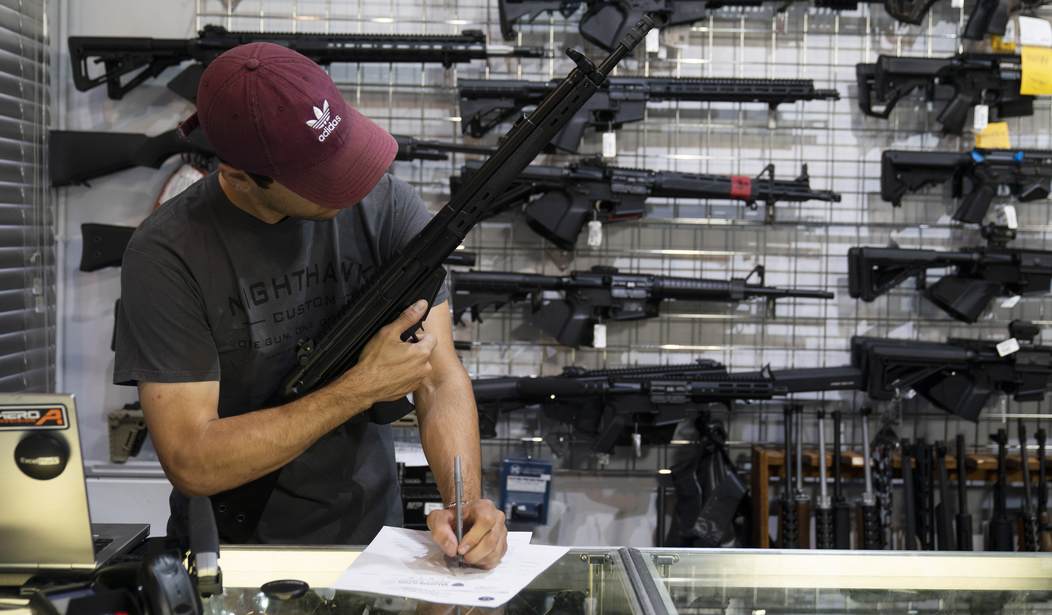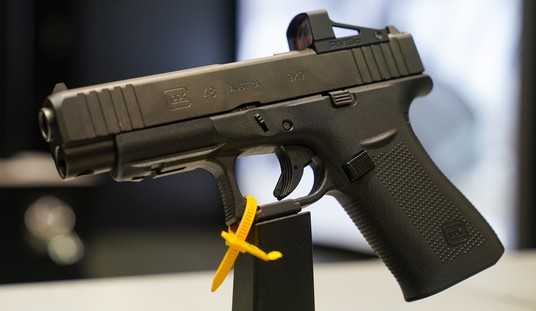In Heller vs DC, the Supreme Court settled things once and for all. It made it very clear that the Second Amendment is an individual right.
It shouldn't have been necessary. After all, the term "the people" appears several times in the Constitution and literally every other instance has been long held as an individual right, yet somehow, people tried to argue that it only meant the states in this one.
Never mind that "the states" also appears in the Constitution and is used to mean, you know, the states themselves. One would think the Founding Fathers would have said "the states" if that's what they meant.
But the debate continues for some reason, even after Heller.
Why? Well, some people really can't accept reality.
Over at The Trace, they're among those.
See, they're trying to make the claim that Heller led to increased gun sales. That may or may not be, but they start with a very faulty premise, that Heller somehow broke a longstanding interpretation of the Second Amendment.
For most of American history, gun ownership was understood to be a collective right tied to militia membership. But that changed in 2008, when The U.S. Supreme Court established for the first time that gun ownership is an individual right. In Episode 5 of “Long Shadow: In Guns We Trust,” host Garrett Graff speaks with the architect of the seismic District of Columbia v. Heller case about his search for the perfect plaintiff, and his surprising views on gun regulation today.
Now, to be fair, this is far from the central premise of this piece, but that's kind of the point. They drop this so matter-of-factly that it's presented as if there's no debate on the subject, that it's an absolute truth.
But the truth is that this idea of it being a collective right was a relatively modern claim.
For example, Second Amendment attorney Kostas Moros has a very long thread on X, formerly Twitter, highlighting examples from the 19th Century where the Second Amendment is described as an individual right.
This thread covers 19th century views on the Second Amendment. It's a revised version of a prior thread, with the biggest change being the links to most of the sources, as well as some corrected typos.
— Kostas Moros (@MorosKostas) April 10, 2023
This first excerpt is from William Rawle.https://t.co/Zyy0zgajy9 pic.twitter.com/FIpWcfbQJ9
It's a long thread, so go and check it out for yourself, but it includes numerous examples showing that throughout the 19th Century, the right to keep and bear arms was held as an individual right. While this doesn't necessarily mean no one believed it to be a collective right, it does show us explicitly that this was far from a universal understanding.
It also undermines the argument that somehow Heller spurred an increase in gun sales.
NICS checks first started in 1998 and held steady until 2006, the first year they topped 10 million checks performed and continued to increase year over year pretty much every year. Heller, however, wasn't decided until 2008. For the math impaired, that's two years after the increase in gun sales started.
How could Heller start a surge that predated the decision?
So we have a faulty premise, a faulty understanding of history, and a faulty understanding of pretty much everything else involved.
The only miracle would be to find they actually got something right in this.








Join the conversation as a VIP Member